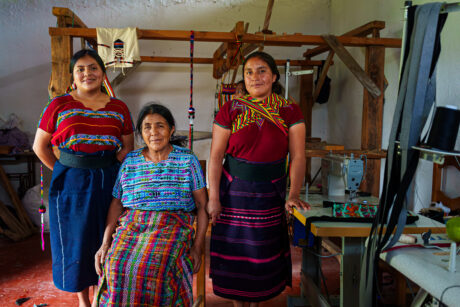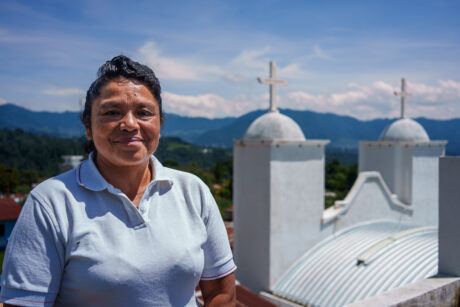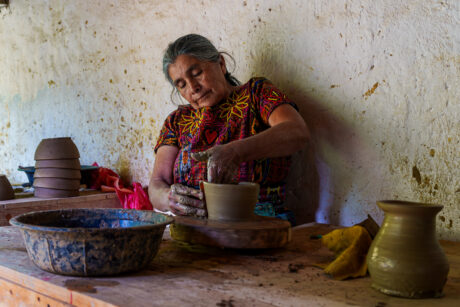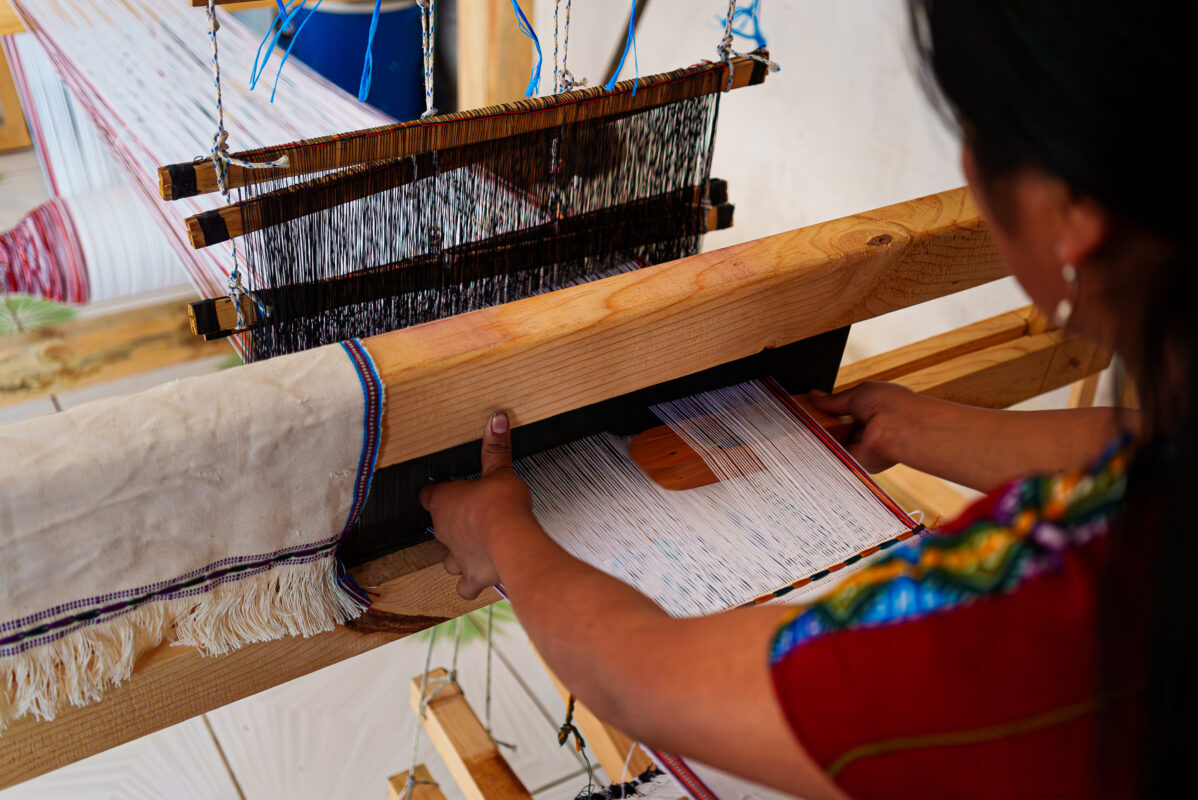Ancestral authorities and indigenous community mayors in the highlands of Guatemala carry a staff (called a vara in Spanish) which represents integrity, authority and responsibility. It is a symbol of profound respect. To carry one is to hold a deep commitment to fair and just leadership while serving your community.
Pedro Nery Gómez carries a staff and along with it, the responsibility of leading his community of Poxlajuj.
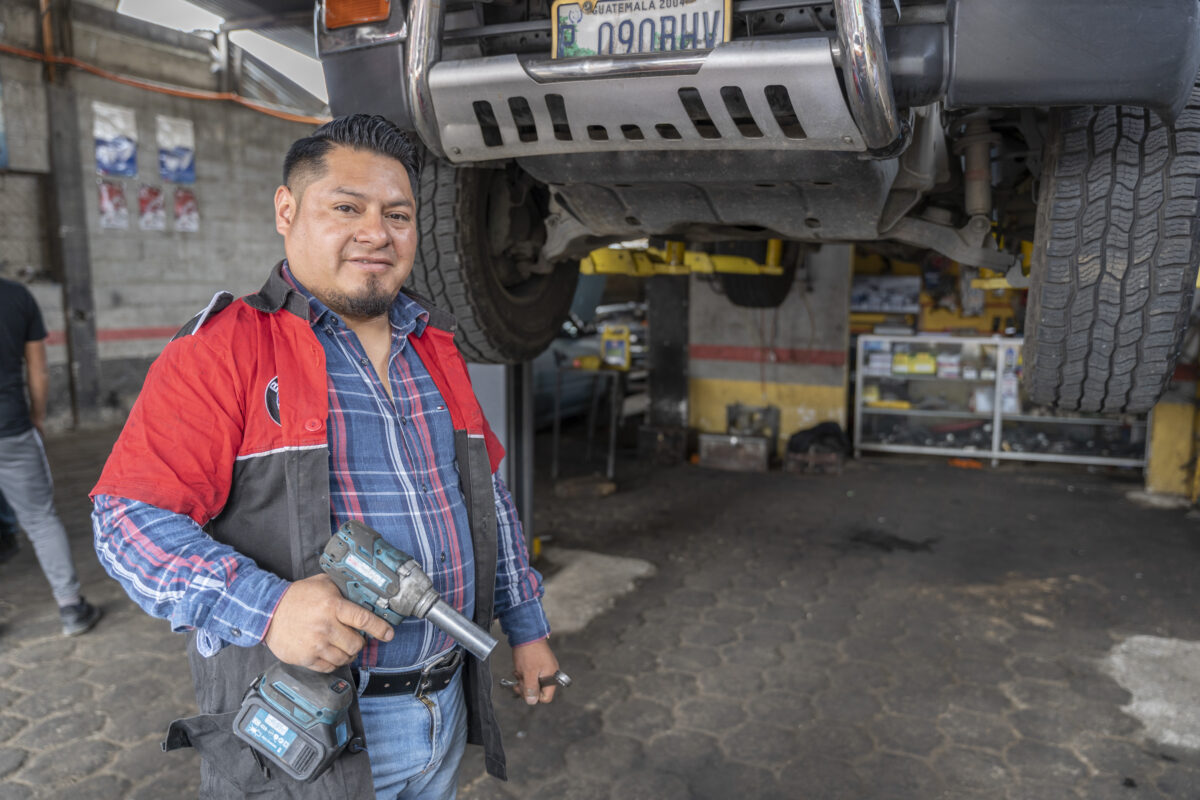
“Connected to the staff are two poms made of thread, which represent authority and community. They are tied together because the two are intertwined,” Gómez explains. “When an authority walks with the staff, the poms move. This movement represents the ancestral dance that one should work in harmony, with willingness and with dignity.”
Leadership runs in Gómez’s family. Born in 1982 to a family rich in ancestral wisdom, Gómez learned at a young age that the responsibility of carrying a staff was passed down to him from past generations.
“My father was community mayor in 1990 and from him, I learned leadership and how to resolve community conflicts,” says Gómez. “He told me, ‘If at any time, you have to serve the community, do it each day as if you are doing it for God.’”
That is what guides Gómez in his day to day. A devout Evangelical Christian, Gómez was born in Poxlajuj, one of the biggest communities in the municipality. He is an auto-mechanic, a trade that he plans to pass onto his two sons, and enjoys riding his bike through the forests that cover the mountains of Totonicapán.
Gómez was elected community mayor by more than 3,000 of Poxlajuj’s residents in 2022 and served the community the best he could. He has been a strong partner to USAID through the Peacebuilding Project.
USAID and Creative support indigenous leaders to design sound development plans for their communities, improve health, water and sanitation services in indigenous communities and expand education and economic opportunities for indigenous youth.
The Peacebuilding Project implemented a training initiative for inclusive and sustainable governability and peacebuilding for ancestral and community authorities of Totonicapán’s 48 Cantones (or communities) in coordination with the Center for Research and Projects for Development and Peace (CEIDEPAZ is the Spanish acronym).
The training provided 48 Cantones authorities the tools to address conflict while upholding human rights and peace and linked national and international peacebuilding mechanisms with ancestral practices of Totonicapán. These tools helped Gómez to address conflicts in Poxlajuj and move development projects forward — the reopening of a road that had been closed for 17 years, building a town hall for community meetings and activities and adding a few more classrooms onto a school. One he is most proud of is the creation of a town regulation, which contains the community’s values and guiding principles.
“I always say, when we are divided, we have no strength,” Gómez says. “When we go off on our own, there is no power. Through this town regulation, we are one Poxlajuj and we demonstrate that with strength, unity and respect.”
Together — Gómez, the community of Poxlajuj and USAID — worked to identify triggers for conflict in the community and found that pollution was one they wanted to prioritize. In response, USAID connected the community with different government entities and facilitated an exchange with the municipality of San Pedro la Laguna, a town with a good track-record of solid waste management.
With these contacts and new knowledge, the community is working to find the best solution to the pollution problem, focusing efforts on managing organic waste and raising awareness about pollution among school-aged children in the community.
While Gómez finished his tenure as community mayor in 2023, he was proud to hand over what he calls a more united Poxlajuj to the incoming mayor, another community leader who carried the staff of authority and guide Poxlajuj with the same integrity, authority and respect that Gómez did.
